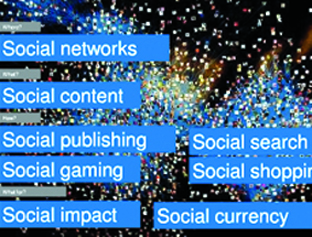
The media landscape has become increasingly social, but have we?
Clay Shirky has rightly been championing that new technologies which foster collaboration are changing the way we work. New publications about the digital age (The Shallows: How the internet is Changing the Way We Think, and Born Digital: Understanding the First Generation of Digital Natives) are now proposing how new technologies are changing us. They prescribe that either our brains are turning to mush as we can no longer focus on, well, anything.
Alternatively, what is happening is that we are enhancing our brain power by processing what was once an insurmountable amount of information. The later hypothesis is not only more settling, but also connotes what is intuitively true: we have become expert filterers.
Neuroscience may be able to explain what the effects of prolonged digital exposure have on our brains, but it cannot accurately measure the feelings that are evoked by playing tron live on your i-phone with a sibling overseas, publishing words to a potential audience of over 2 billion (even if only 2 are going to read it), or finding your spouse online (now a reality for 1 in 6 couples).
